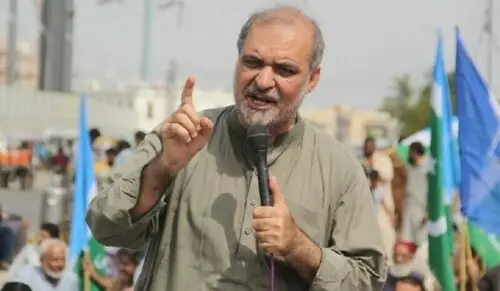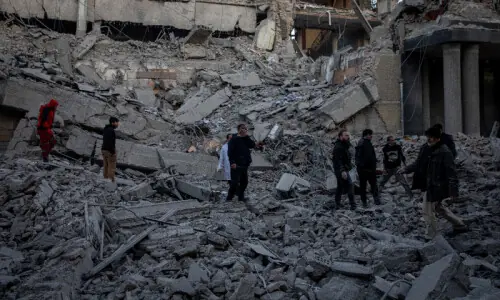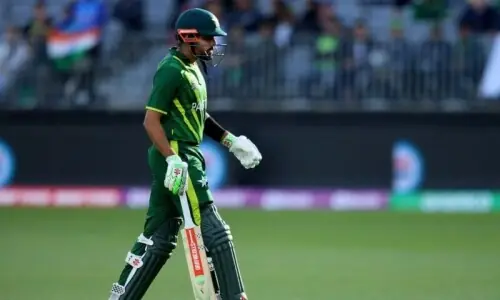ISLAMABAD: There will be more to regret than celebrate as parliament begins its new year on Monday, awaiting some new mantra to do better.
President Mamnoon Hussain’s address to a joint sitting of the National Assembly and Senate to open the new parliamentary year also comes three days before Prime Minister Nawaz Sharif’s government is to complete its first year in office and seems embroiled in dire issues both inside and outside parliament.
But the performance of parliament in its primary task as the country’s top legislature has been most dismal in the past one year, without a single bill making through both houses to become an act.
Some element of hubris or lack of tact on the part of the managers of the ruling PML-N could be blamed for this state of affairs where none of a total of 10 bills — besides the Finance Bill — that the government pushed through the 342-seat National Assembly, where it has absolute majority, could yet get through the 104-seat opposition-controlled Senate.
That is in sharp contrast to the record of the previous PPP-led coalition government, which credited a policy of so-called “reconciliation” with political opponents engineered by then president Asif Ali Zardari for the adoption of most of more than 100 bills passed during its five-year term with consensus, including landmark amendments to the Constitution.
Prime Minister Sharif seemed to be taking a leaf out of Mr Zardari’s book when he recently agreed to accommodate more opposition amendments after a key, but controversial, government legislation against terrorism was bulldozed through the National Assembly but was blocked by the opposition in the Senate.
Both sides have since pondered over a series of opposition amendments aimed at mitigating some of the harsh provisions like authorising law-enforcement agencies to shoot terrorism suspects at sight, detain them for up to 90 days without trial and holding secret trials.
But an amended consensus draft of the Protection of Pakistan Bill — based on two presidential ordinances — is yet to come before the Senate.
The president’s constitutionally mandated address, due at 11am, will be watched for any change of course advised by the prime minister for law making.
Contrary to the parliamentary low, the president is likely to speak high about the government’s claims of beginning an economic turnaround, explain the present state of the government’s stalled peace talks with Taliban rebels and reiterate the country’s traditional foreign policy goals.
The main opposition PPP has said it will not raise any protest during the presidential address, but the Pakistan Tehreek-i-Insaf, which is agitating against alleged rigging in the May 11, 2013 general elections, is yet to take a decision.
Published in Dawn, June 2nd, 2014































